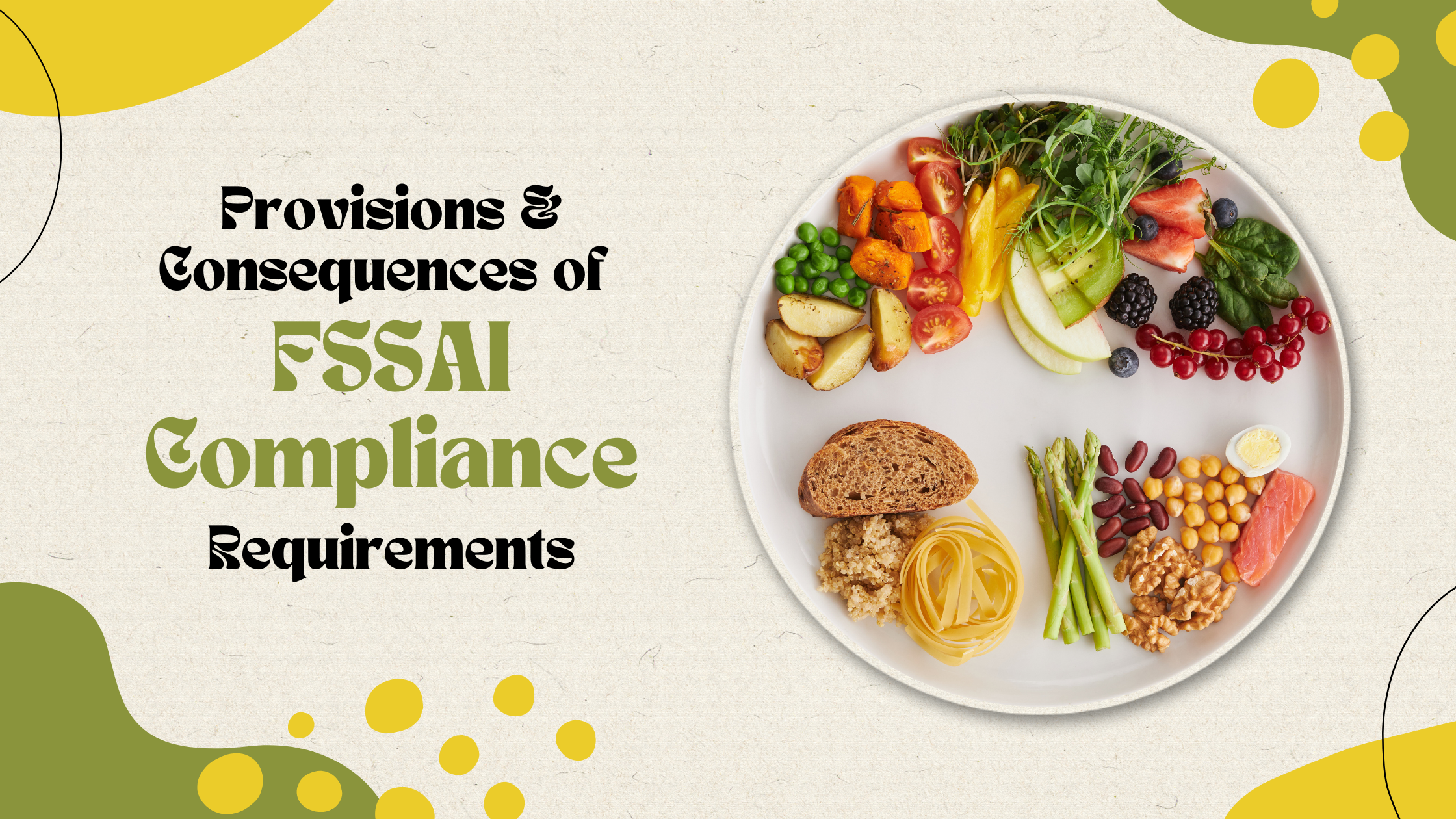FSSAI Compliance Requirements – Summary:
The Food Safety and Standards Act, 2006 has laid down certain provisions and consequences of FSSAI Compliance Requirements. It is essential as it not only ensures consumer safety but also enables the Authorities to oversee any misleading or compromises happening in the Food Business. In case the, Food Business Operators (FBOs) are found non-compliant with the FSSAI Compliance criteria, the Authorities have every right to penalize the responsible under FSS Act, 2006 provisions.
- The FBOs who are found to be in non-compliance with the regulatory compliance FSSAI rules and regulations can be penalized under the Food Safety and Standards Act, 2006.
- Food Safety compliance is an essential part of overall health and well-being.
- Unsafe Food can be defined as a food article which has low quality or substance that might affect health.
- The FSS Act, 2006 has certain provisional checklists for FSSAI compliance which need to be followed by every FBO.
What is Food Safety and Standards Act, 2006?
The Central Government of India passed the act called Food Safety and Standards Act, 2006. This act was established to ensure food safety and protect consumer rights across India. The FSS Act, 2006 made it mandatory to have an FSSAI License for every Food Business Operator (FBO) in India. Each FBO having a Food License ensures that only the license-registered people are involved in manufacturing, importing, storing, distributing and selling all food products within India.
It is essential to comply with all the provisions and guidelines laid down by FSSAI. However, if the FBOs are found non-compliant, the Government has implemented various penalty provisions to penalize the food businesses.
FSS Act, 2006 have put forth several penalties or punishments for selling sub-standard food, misleading advertisements, adulterated food, and misbranded food articles. Unhygienic processing, etc.
What is the importance of Regulatory Compliance FSSAI?
Food Safety is an essential part of overall health and human well-being. The FSS Act, 2006 defines Food Safety as “it is an assurance that a food item is acceptable for human consumption as per its intended use”.
Food Safety ensures that the food is suitable for consumption and has been prepared with proper hygiene and stored in appropriate condition. So, no food-borne disease will be caused after consuming the food.
What is an Unsafe Food?
The FSS Act, 2006 defines Unsafe Food as a food article which has a nature, quality or substance that might affect our health.
- It might be poisonous or contain harmful substances
- It might be processed under unhygienic conditions
- It may contain inferior or cheaper quality raw materials such as adulterants
- It may contain ingredients that are not permitted for consumption
- It may contain artificial food colour
- It might contain pesticides exceeding the standard limit.
What are the general provisions of FSSAI Compliance Checklist?
The FSS Act, 2006 have established a unique set of FSSAI compliance checklist that needs to be followed by each FBO. Below are a few provisions for food articles:
- Food additives and processing aid: Only permitted food additives and processing aids that too in permitted applicable limits must be used in the food.
- Reject toxic substances and contaminants: Food articles should adhere to the limits specified for naturally occurring toxins/toxic substances, heavy metals, etc. Foods exceeding the limits must be considered non-compliant.
- No the usage of pesticides or drugs: The food article must adhere to the limits for insecticides or pesticides, antibiotics, or veterinary materials.
- Avoid biological pathogenic organisms: The food articles may contain good bacteria (probiotics), but must be free from pathogenic microbes.
- Restriction of food categories: The Central Government must be notified of using food articles containing irradiated food, functional foods, genetically modified foods, FSMP, FSDU, proprietary foodetc.
- Labelling and packaging requirements: Section 23 deals with the subject of labelling and packaging requirements of food. All the labels of the packaged food should mention accurate information about the nutrients, any allergens, veg/non-veg logo, etc. The labelling should not be misleading to the customers. It should be written in a simple and English or Hindi and may have a regional language additionally.
- Restrictions of trade practices: Section 24 deals with the restriction of false advertisement and the prohibition of unfair practices. No person should engage in unfair trade practices such as a false representation of food standards, quality and quantity. Misleading about the usefulness of the products.
- Provisions for importing in India: Section 25 mandates the FBOs to have a valid import license to import any food commodities in India. There is a strict prohibition under the Foreign Trade (Development and Regulation) Act, 1992.
consequences of FSSAI Legal Requirements When You Don’t Follow FSSAI Compliance Rules
The consequences of FSSAI Compliance are described as follows:
| Sections | Offence | Consequences/Fine |
| Section 50 | Food not of quality demanded | 2 lakhs |
| Section 51 | Sub-standard food | 5 lakhs |
| Section 52 | Misbranded food | 3 lakhs |
| Section 53 | Misleading advertisement Nature or quality or substance | 10 lakhs |
| Section 54 | Food contains extraneous matter | 1 lakh |
| Section 55 | Failure to comply with FSO direction | 2 lakhs |
| Section 56 | Unhygienic or unsanitary: Processing; or manufacturing | 1 lakh |

